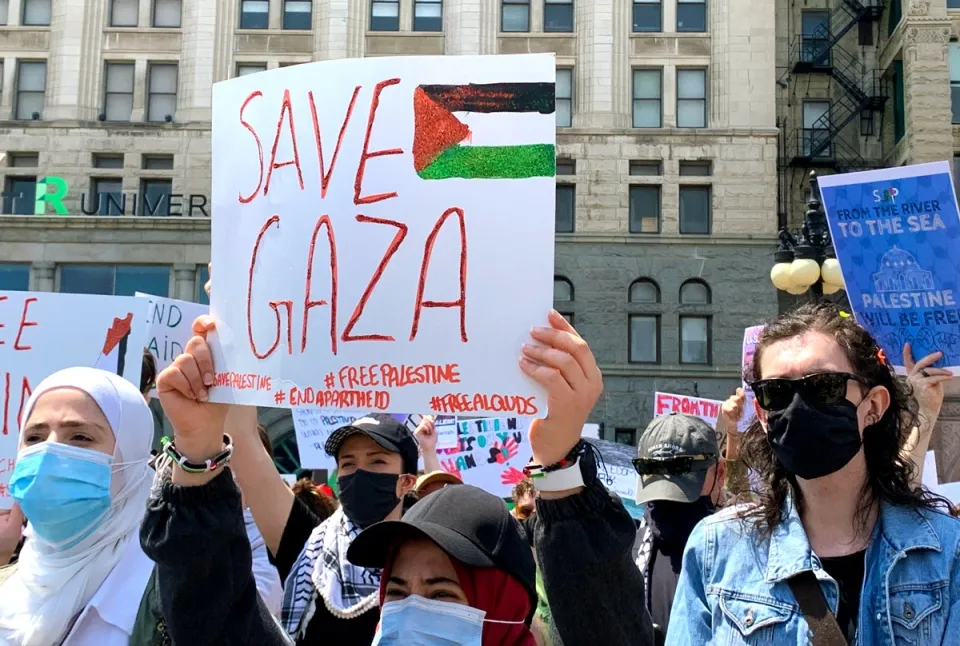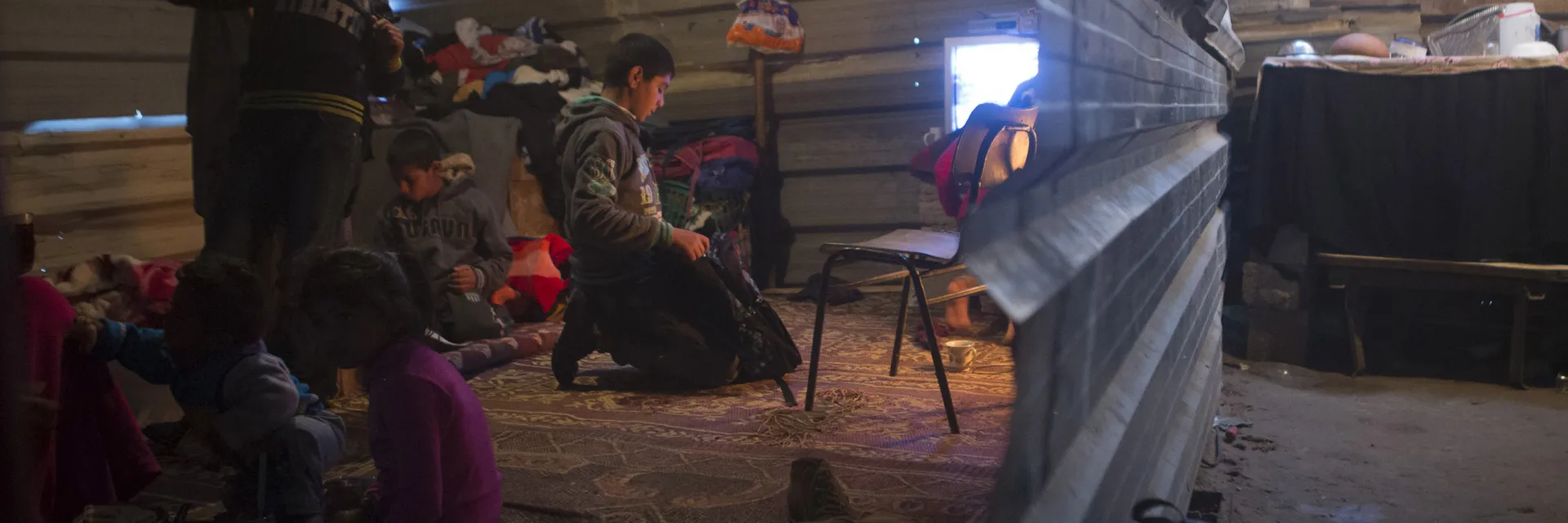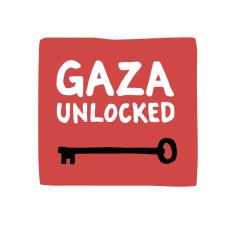Faced with rapid population growth and approximately 50% of its population under 18 years of age, Gaza is in constant need of new housing. But since imposing the blockade in 2006, Israel has blocked the importation of materials needed to construct homes, creating a housing and building crisis.
This crisis also impacts other sectors, notably education and health, since new schools and medical facilities cannot be built to meet growing needs.
The situation is compounded by the destruction caused by repeated Israeli military attacks on Gaza. During the 2014 attack on Gaza, over 17,800 homes were severely damaged or destroyed to the point of being uninhabitable. An additional 150,000 homes were damaged but remained inhabitable.
During Israel’s 2021 attack on Gaza, more than 2,000 homes were destroyed or partially destroyed, and over 60,000 damaged. In the year following the attack, only 200 had been rebuilt.
The 2014 and 2021 attacks compounded the damage and destruction of previous attacks. Schools, hospitals, businesses, and key infrastructure cannot be repaired or rebuilt because of restrictions on the import of building materials under Israel’s blockade.
Quick Facts: Impacts of Blockade, Bombardments, and “Dual Use” Restrictions
-
Gaza is one of the most densely populated areas in the world, with 5,204 people per square kilometer. As a result of the rapidly growing population, frequent Israeli bombardments, and restrictions on building materials, Gaza faces a severe housing crisis.
-
Approximately 17,800 homes were damaged or destroyed by Israeli airstrikes in the 2014 assault on Gaza. Two years later, only 30% had been rebuilt.i
-
During Israel’s 2021 attack on Gaza, over 2,000 homes were destroyed or partially destroyed, and over 60,000 damaged. One year later, only 200 had been rebuilt. Some 1,800 families, around 10,000 people, remain unable to return home.ii
-
Even before the 2021 attack on Gaza, Palestine’s Minister of Housing said that Gaza needed over 100,000 new housing units and that 24,000 homes needed to be reconstructed.
-
Restrictions on the entry of key materials needed for the repair, upkeep, and building of key electrical, water, and sanitation infrastructure is one core cause of the electrical and water/sanitation crises in Gaza.
-
Even when materials are allowed into Gaza, increased shipping, storage, and compensation costs raise prices and make construction unaffordable for many. Additionally, blocked access to Gaza of staff and contractors needed for building and infrastructure projects delays or stops building.iii
-
Israel has compiled a list of items that are banned from entering Gaza. That list does not comply with international standards for identifying “dual use” items (civilian items that may have a military use) and includes key building materials including wood planks, rebar, cement, pipes, and adhesives.iv
-
Israeli restrictions on building materials due to its “dual use” policy has forced rebuilding efforts to use subpar building materials and techniques, like using mud to build houses.
i United Nations Office for the Coordination of Humanitarian Affairs (OCHA), “Infographic: Gaza two years after the 2014 hostilities” (August 2016).
ii The New Humanitarian, “One year on from Israel’s bombardment, Gazans still await help to rebuild” (May 2022).
iii World Bank, “Economic Monitoring Report to the ad hoc Liaison Committee” (Sept. 2016).
iv Gisha, “Gaza Policy Forum summary: Experts agree that Israel’s dual-use policy causes acute distress” (Jan. 2022).

What can you do?
Demand an immediate end to the blockade on Gaza: U.S. government policy officially supports Israel’s continued blockade on Gaza even as it faces humanitarian collapse and the disastrous effects of four major Israeli aggressions. The blockade is illegal and immoral and must end. Organize in solidarity, take part in protests, and contact your elected officials and demand that they call for an immediate change in U.S. government policy and an end to Israel’s blockade on Gaza. Join the growing Palestine rights movement to educate, advocate, and demand change.
Learn More
The following organizations in the occupied Palestinian territory and Israel address and challenge Israel’s policies on Gaza:


